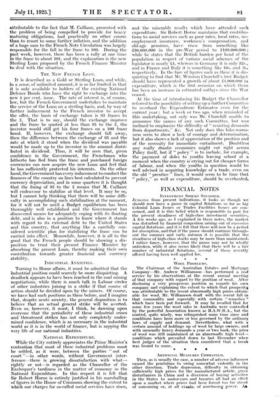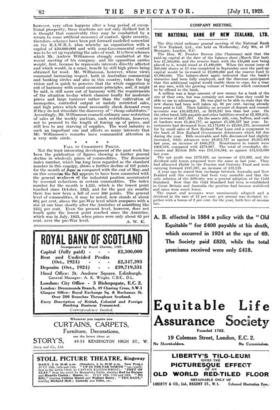ARTIFICIAL MEASURES COMBATTED.
Then, as is usually the case, a number of adverse influences caused the pendulum to swing somewhat violently in the other direction. Trade depression, difficulty in obtaining sufficiently high prices for the manufactured article, grave disturbances in China and a diversion of buying activities in the States to motor-cars and luxuries all had an effect upon a market where prices had been forced too far ahead of consuming or, at all events. of purchasing power. Ale however, very often happens after a long period of excep-
tional prosperity, these reactions are not disliked but it is thought that conceivably they may be combatted by a return to some artificial measures of control. Quite recently, therefore, schemes have been put forward modelled somewhat on the B.A.W.R.A. plan whereby an organization with a capital of £50,000,000 and with semi-Governmental control was to be set up regulating the sales of wool. It is these schemes which Mr. Andrew Williamson strongly combatted at the recent meeting of his company, and his opposition carries weight, first, because he represents interests directly affected and which would, in a sense, benefit by still high prices being obtained for wool. Mr. Williamson, however, whose views command increasing respect, both in Australian commercial and banking circles and also in this country, takes the big vision and is quick to perceive that the whole suggestion is out of harmony with sound economic principles, and, it might be said, is still more out of harmony with the requirements of the situation to-day which clamour loudly for moderate prices and large turnover rather than the cultivation of monopolies, controlled output or unduly restricted sales, and high prices which must necessarily check demand even if they do not stimulate the discovery of " cheap substitutes." Accordingly, Mr. Williamson counsels ordinary sane restriction of sales at the weekly auctions, such restrictions, however, not to proceed to the length of forcing up of prices, and still less to any starving of supplies. The wool industry is such an important one and affects so many interests that Mr. Williamson's remarks have commanded attention in a very wide circle.



























































 Previous page
Previous page